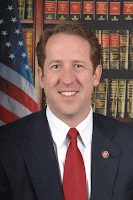Nebraska’s vast horizon where blue sky meets rolling farmland is occasionally interrupted by towering silos that stand as proud reminders of Nebraska’s rich agricultural heritage. No doubt, grain bins and family farms go together like the State Fair and 4-H.
So, you can imagine the surprise by one of Nebraska’s family farms when the federal Occupational Safety and Health Administration (OSHA) showed up and declared their grain bins separate from their farming operation. Their surprise was two-fold. First, everyone who has spent any time on a farm knows that grain storage is not only a normal, but an essential, part of many farm operations. Secondly, OSHA had no business setting foot on that farm because the law prohibits OSHA from enforcing regulations on small farms, specifically farms with fewer than 10 employees – this farm had just three.
It has been this way since 1976, when Congress first passed the small farms exemption. So while farms have been exempt from OSHA regulations for more than 35 years and grain storage has been a part of farming for generations, the agency has decided to ignore history and distort definitions to do an end-run around the law.
And here’s the kicker. That regulatory overreach came with a $132,000 fine for that Nebraska family.
This latest example of wrongful regulatory overreach further reinforces suspicions by the agriculture community that the Obama Administration is singling out America’s ag producers. I often hear from farmers and ranchers who must deal with agencies like EPA and OSHA going around the legal process by creatively interpreting the law or setting their own rules to expand their jurisdiction. Of course farmers and ranchers care about safety. And a safe working environment is especially important to small farmers and ranchers, whose families are often the only ones on the payroll.
I recently called on the Department of Labor, OSHA’s parent agency, to halt all activity in conflict with the long-held congressional direction regarding small, family owned farms and to send a clear signal that America’s ag producers are not going to be unfairly targeted. It’s time they stop the irony of claiming these farmers and ranchers are in the wrong, when in reality, OSHA is the one violating the law.
OSHA and other regulators need to stand with America’s ag producers rather than standing in their way.
The negative impacts of this latest overreach and the broad implications for our ag producers is clear. The way OSHA is doing it speaks to an even larger issue. This Administration is in hot pursuit of an overly aggressive regulatory agenda. An agenda that is being pursued outside of the legal process that allows for Congressional review and public comment, and outside of the law itself.
I’m going to continue working to ensure Nebraska’s farmers and ranchers can operate free from unnecessary and unlawful obstacles brought on by Washington bureaucrats – and to keep an ever-watchful eye on this Administration’s pursuit of an all-encompassing, costly regulatory agenda
It has been this way since 1976, when Congress first passed the small farms exemption. So while farms have been exempt from OSHA regulations for more than 35 years and grain storage has been a part of farming for generations, the agency has decided to ignore history and distort definitions to do an end-run around the law.
And here’s the kicker. That regulatory overreach came with a $132,000 fine for that Nebraska family.
This latest example of wrongful regulatory overreach further reinforces suspicions by the agriculture community that the Obama Administration is singling out America’s ag producers. I often hear from farmers and ranchers who must deal with agencies like EPA and OSHA going around the legal process by creatively interpreting the law or setting their own rules to expand their jurisdiction. Of course farmers and ranchers care about safety. And a safe working environment is especially important to small farmers and ranchers, whose families are often the only ones on the payroll.
I recently called on the Department of Labor, OSHA’s parent agency, to halt all activity in conflict with the long-held congressional direction regarding small, family owned farms and to send a clear signal that America’s ag producers are not going to be unfairly targeted. It’s time they stop the irony of claiming these farmers and ranchers are in the wrong, when in reality, OSHA is the one violating the law.
OSHA and other regulators need to stand with America’s ag producers rather than standing in their way.
The negative impacts of this latest overreach and the broad implications for our ag producers is clear. The way OSHA is doing it speaks to an even larger issue. This Administration is in hot pursuit of an overly aggressive regulatory agenda. An agenda that is being pursued outside of the legal process that allows for Congressional review and public comment, and outside of the law itself.
I’m going to continue working to ensure Nebraska’s farmers and ranchers can operate free from unnecessary and unlawful obstacles brought on by Washington bureaucrats – and to keep an ever-watchful eye on this Administration’s pursuit of an all-encompassing, costly regulatory agenda













